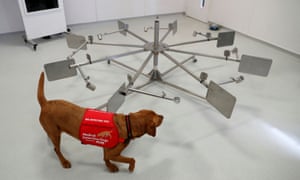UK lockdown causing ‘serious mental illness in first-time patients’
People with no history of mental illness are developing serious psychological problems for the first time as a result of the lockdown, amid growing stresses over isolation, job insecurity, relationship breakdown and bereavement, the Royal College of Psychiatrists has disclosed.
Adults and children are having psychotic episodes, mania and depression, with some taken to hospital because of the heavy toll on their mental wellbeing.
Men aged 18-25 are reported to have been badly affected by first-time mental health issues. Previous research has suggested they feel the worst affected by restrictions on their movement, and are most likely to flout the lockdown.
Eight weeks into lockdown measures, the Royal College of Psychiatrists is warning that services could be overwhelmed by “a tsunami of mental illness”.
As Donald Trump spoke to the press in his Rose Garden on Friday, a low hum could be heard from outside the White House grounds.
The president said the sound was truckers “showing support” and insisted: “They love their president.”
In fact, the noise, which grew to include the honking of airhorns, was a protest.
According to a long-haul trucking industry website, the Trucker, the protest has been active for 15 days.
The drivers involved say they have not received targeted support in any coronavirus stimulus package and do not have adequate access to protective equipment and healthcare.
They have also voiced serious concerns about the rates they are getting through brokers who connect them with people needing to ship goods.
UK researchers hope dogs can be trained to detect coronavirus
Dogs are to be trained to try to sniff out the coronavirus before symptoms appear in humans, under trials launched with £500,000 of government funding.
Dogs have already been successfully trained to detect the odour of certain cancers, malaria and Parkinson’s disease, and a new study will look at whether labradors and cocker spaniels can be trained to detect Covid-19 in people.

Researchers at the London School of Hygiene and Tropical Medicine will carry out the first phase of a trial in collaboration with Durham University and the charity Medical Detection Dogs.
The initial stage of the research will see odour samples collected from coronavirus patients in London hospitals. Six specialist dogs will then undergo training to identify the virus from the samples.













.png?width=140&height=140&quality=85&auto=format&fit=max&s=7da5d014a3e559d1635376cd41d139cd)




